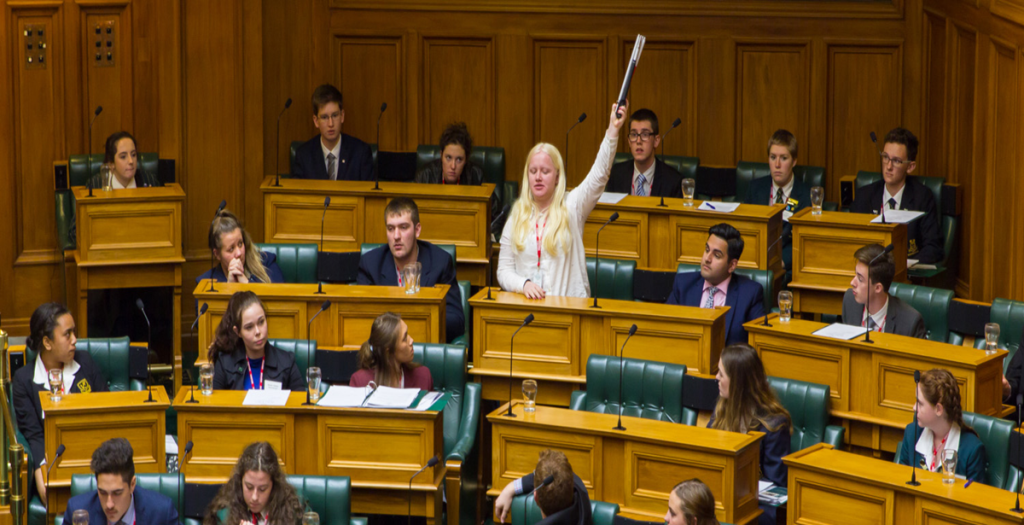Maori lawmakers in New Zealand have disrupted Parliament in a protest against a bill that intended to reinterpret a centuries-old document seen as New Zealand’s founding treaty with its Indigenous people.

The protest began when Maori lawmaker Hana-Rawhiti Maipi-Clarke stood up during a first reading of the Principles of the Treaty of Waitangi Bill and started performing a haka, joined by other opposition members.
The haka, a powerful and symbolic display involving rhythmic stomping and chanting, has long been used in Maori culture as a form of protest and unity.
The bill, which aims to redefine the principles of the Treaty of Waitangi, was signed in 1840 between the British Crown and Maori chiefs and has drawn widespread criticism despite its slim chances of becoming law. The treaty, which established New Zealand as a British colony, is considered the foundation of the country’s relationship with its Indigenous people and remains central to efforts to ensure the protection and promotion of Maori rights.
However, the ACT Party’s proposal seeks to narrow the scope of the treaty’s principles, a move critics argue would undermine key programs designed to protect the interests of Maori citizens. The bill is seen by opponents as an attempt to dismantle initiatives in education, health, and other sectors that benefit the Maori community, and as an effort to deepen divisions within New Zealand society.
Co-leader of the Maori Party, Rawiri Waititi, said the bill is not about unity, it’s about division, adding that the government is waging war on our existence as Maori and on the fabric of this nation.”
The treaty’s anniversary remains a national holiday in New Zealand, and its principles continue to serve as a guiding framework for partnership between Indigenous and non-Indigenous people. The proposed changes have ignited fears that the government is seeking to downplay the treaty’s significance and its role in shaping modern New Zealand.
Prime Minister Christopher Luxon, whose government is in a coalition with the ACT Party, has allowed the bill to proceed as part of a coalition agreement. However, Luxon’s National Party is unlikely to support the bill’s passage, and the proposal has been dismissed by the Labour opposition as a “waste of money” with no support from other parties.
Despite the controversy, the bill’s introduction signals ongoing tensions over the Treaty of Waitangi and its role in contemporary New Zealand politics, with critics accusing the government of pursuing a policy that risks further polarising the nation.

